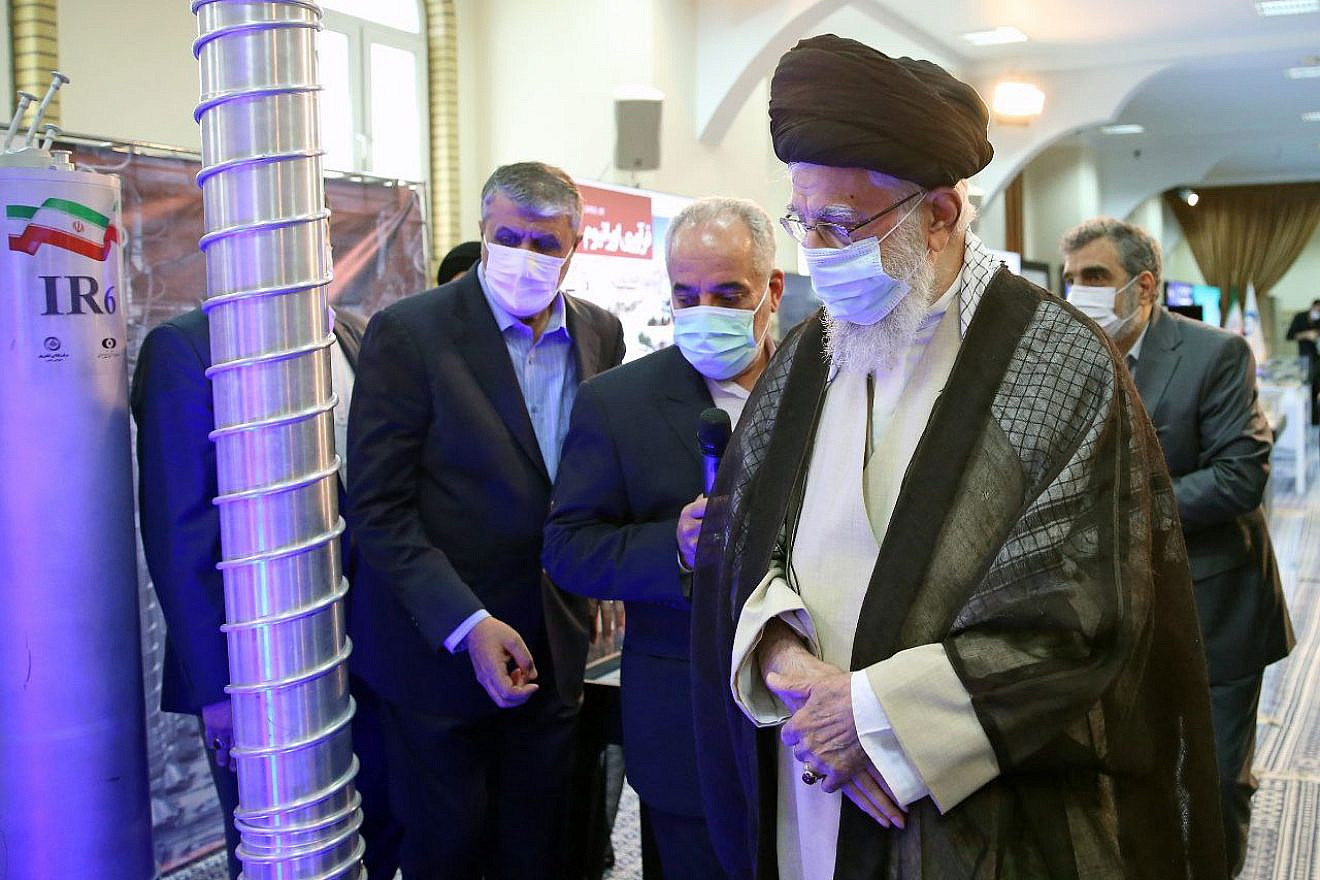While Iran’s production of 60%-enriched uranium has not slowed, its stockpile of high-enriched uranium has decreased in recent months, according to recent International Atomic Energy Agency reports.
The Islamic Republic continues to increase its overall stockpile of uranium and block inspectors from monitoring its nuclear program, and has still provided no explanation for the presence of manmade uranium particles found at two sites in the country, according to two confidential quarterly reports distributed to U.N. members states and seen by Reuters and AP.
Tehran currently has an estimated 121.5 kilograms (267.8 pounds) of uranium enriched up to 60%, representing a decrease of 6.8 kilograms (14.9 pounds) since the last report in November 2023, according to Reuters, citing one of the reports.
The decrease is due to Iran diluting 31.8 kilograms (70 pounds) of material of its 60% enriched uranium in recent weeks.
“At the beginning of the year they decided to do a downblending…A couple of weeks later they did another downblending, this time with a smaller amount,” a senior diplomat told Reuters.
Downblending refers to high-enriched uranium being mixed with low-enriched uranium, eliminating its usefulness for constructing a weapon.
“Maybe they don’t want to increase tensions (with the West). Maybe they have an agreement with somebody. We don’t know,” said the official.
According to Andrea Sticker, nonproliferation and biodefense program deputy director and research fellow at the Washington-based Foundation for Defense of Democracies, the move should be viewed “as a transparent effort by Tehran to falsely comfort the West and evade IAEA board censure after all the havoc the regime has caused since the attacks of Oct. 7.”
“The West must not fall for it,” she added.
Eric Brewer, deputy vice president of the Washington-based Nuclear Threat Initiative, told AP that Iran already has enough 60%-enriched uranium for roughly three nuclear weapons if further enriched to weapons-grade, or 90%.
“When you include Iran’s stockpile of 20% enriched uranium and 5%, it has enough material for several additional bombs,” he said.
Tehran is being less than forthright with the International Atomic Energy Agency regarding its nuclear program, IAEA Director-General Rafael Mariano Grossi said earlier this month.
The head of the U.N.’s nuclear watchdog group made his remarks in light of comments by Ali Akbar Salehi, former head of the Atomic Energy Organization of Iran, to the effect that the Islamic Republic has all the pieces for a nuclear weapon “in our hands.”
Speaking at the World Government Summit in Dubai, Grossi said the Islamic Republic is “presenting a face which is not entirely transparent when it comes to its nuclear activities. Of course this increases dangers.”
“There’s loose talk about nuclear weapons more and more, including in Iran recently. A very high official said, in fact, ‘we have everything, it’s disassembled.’ Well, please let me know what you have,” Grossi added.
Israeli Air Force establishes Iran department
The Israeli Air Force has established a department devoted to Iran as the threat to the Jewish state from the regime in Tehran continues to increase.
According to the IDF’s announcement, the department will handle military preparations for future attacks on Iran and its main focus will be to work on countering the Iranian nuclear program.
Additionally, the department will also work to eliminate the threats from Iran’s regional terror proxies in Gaza, Judea and Samaria, Lebanon, Yemen, Syria, Iraq and other arenas.
According to official sources within the security establishment cited by The Jerusalem Post, the announcement of the Iran department signals a warning to Iran and also to the United States that Jerusalem is serious about the military option to remove the Iranian threat.


























